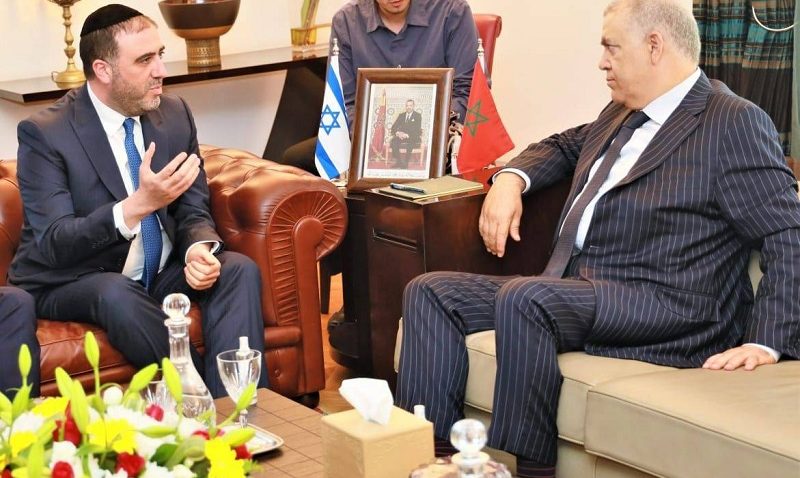Morocco has become the country that receives the most members of the Israeli government in the world in this year 2023, which advances the “normalisation” of relations at a speed that was not previously foreseen in 2020, the date of the signing of the Abraham Accords.
At the invitation of the Moroccan Minister for Universities, Scientific Research and Innovation, Abdellatif El Mirawi, the Israeli Minister for Innovation, Science and Technology, Ofir Akunis, arrived in Rabat on Monday for an official visit, the third by an Israeli minister to Morocco in less than a month.
Last Friday, the Moroccan Minister of the Interior, Abdelwafi Laftit, received his Israeli counterpart, Moshe Arbel. Both ministers discussed a wide range of issues relating to the strengthening of relations between the two parties. At the end of last month, the Israeli Minister of Transport, Miri Regev, visited the capital, Rabat, and signed agreements with the Moroccan Minister of Transport, Mohamed Jali.
In addition to the three ministers, other visits of officials occupying important positions in Israel have taken place in the space of a month. These included the visit by the Speaker of the Knesset (parliament) Amir Ohna, the first visit by a President of the Knesset to an Arab country, and the visit of National Security Adviser Tzachi Hanegbi.
These visits are considered unprecedented in the history of Moroccan diplomacy. For never before has Morocco received five senior officials from a country in less than a month, as is the case with Israel. These visits occurred at a time when Morocco had not yet opened an embassy in Israel, but had confined itself to a liaison office.
At the same time, no Arab and Islamic country that has normalised its relations with Israel has received such a large number of senior officials, such as ministers, from Israel in such a short space of time. On the contrary, there is now a kind of gulf between Israel and the countries that were the first to normalise their relations with it, such as Jordan and Egypt.
Despite an increasing number of visits by Israeli officials, relations between the two parties have not developed in any significant way with concrete results. No military agreement has been signed under which Morocco would acquire advanced Israeli weapons, but only military cooperation agreements.
At the same time, Israel has not recognised Morocco’s sovereignty over the Sahara and continues to manoeuvre on this vital political issue for Moroccan diplomacy. It suggests that it might recognise Morocco’s sovereignty if the Europeans recognised it first. On the other hand, there are many agreements that include promises such as tourism, training, sending Moroccan labour to Israel and Israeli military industrialisation in Morocco, but which have not produced any significant results for the time being.

